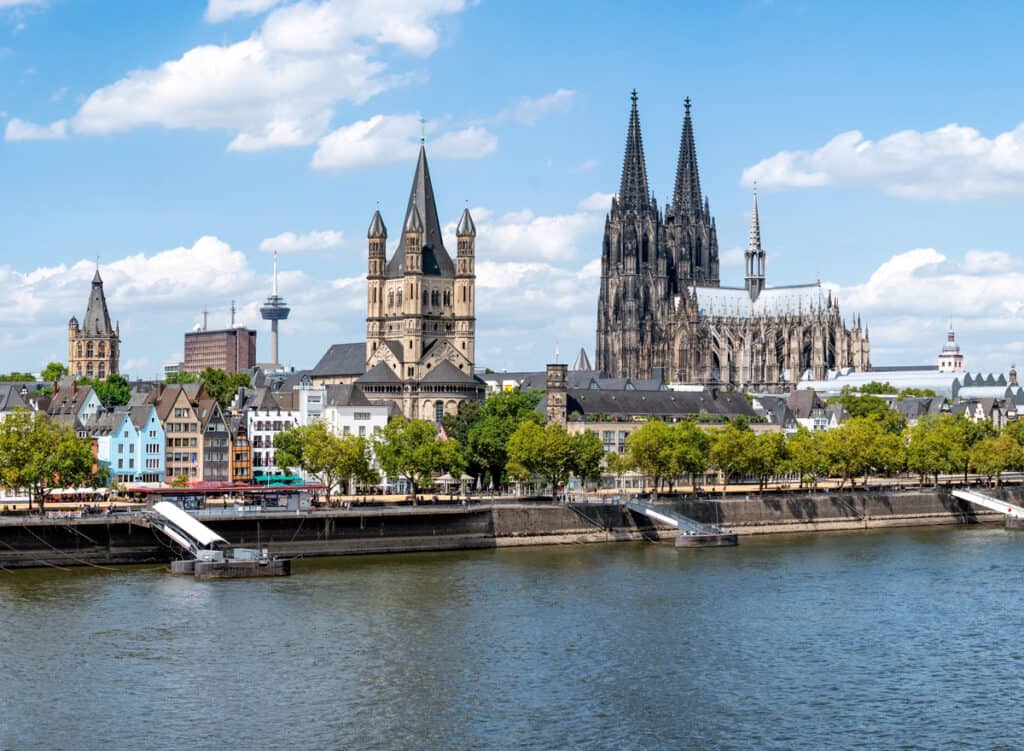Click Temperature to toggle between Farenheit and Celsius.
Travel Insider Tips for Munich
Munich Overview
Munich is the capital city of the Free State Of Bavaria, Germany. It is located on the River Isar north of the Bavarian Alps. Munich is the third largest city in Germany, after Berlin (Berlin vacation rentals | Berlin travel guide) and Hamburg (Hamburg vacation rentals | Hamburg travel guide). There are approximately 1.35 million people living within city limits, while the Munich Metropolitan Area (including the urban areas of Augsburg (Augsburg vacation rentals | Augsburg travel guide), Ingolstadt (Ingolstadt vacation rentals | Ingolstadt travel guide), Rosenheim (Rosenheim vacation rentals | Rosenheim travel guide) and Landshut) is home to over 5 million people.
The city’s motto is München mag Dich
(Munich Loves You
in the English version). Before 2006, it was Weltstadt mit Herz
(world city with heart). Its native name, München, is derived from the Old German word for Mönche, which means Monks
in English. The reason for naming the city in such a manner is to honour the fact that monks of the Benedictine order founded the city. This is also the reason for the monk depicted on the city’s coat of arms. Black and gold – the colors of the Holy Roman Empire – have been the city’s official colours since the time of Ludwig the Bavarian.
Munich is not the only location within Bavaria known as München
. Three such locations exist: the one which is known as Munich
; another which is northeast of the city of Nuremberg (Nuremberg vacation rentals | Nuremberg travel guide), and also Hutthurm (Hutthurm vacation rentals | Hutthurm travel guide), a town north of the city of Passau (Passau vacation rentals | Passau travel guide).
In July 2007, Munich had 1.34 million inhabitants; 300,129 of those did not hold German citizenship. The city has strong Turkish and Balkan communities. The largest groups of foreign nationals were Turks (43,309), Albanians (30,385), Croats (24,866), Serbs (24,439), Greeks (22,486), Austrians (21,411), and Italians (20,847). 37% of foreign nationals come from the European Union.
Where to stay in Munich?
Check out our selection of quality Munich vacation rentals and holiday apartments.
Things to See in Munich
Marienplatz – a large open square named after the Mariensäule, a Marian column in its centre – with the Old and the New Town Hall. Its tower contains the Rathaus-Glockenspiel. Three gates of the demolished medieval fortification have survived to this day – the Isartor in the east, the Sendlinger Tor in the south and the Karlstor in the west of the inner city. The Karlstor (destroyed during the Second World War and rebuilt afterwards) leads up to the Stachus, a grand square dominated by the Justizpalast (Palace of Justice) and a fountain.
The large Residenz palace complex (begun in 1385) on the edge of Munich’s Old Town ranks among Europe’s most significant museums of interior decoration. Having undergone several extensions, it contains also the treasury and the splendid rococo Cuvilliés Theatre.
Schloss Nymphenburg (Nymphenburg Palace) is surrounded by an impressive park and is considered to be one of Europe’s most beautiful royal residences.
The Englischer Garten, close to the city centre and covering an area of 3.7 km² is one of the world’s largest urban public parks, and contains a nudist area, jogging tracks and bridle-paths. It was designed and laid out by Benjamin Thompson, Count of Rumford, an American, for both pleasure and as a work area for the city’s vagrants and homeless. Nowadays it is entirely a park with a Biergarten at the Chinese Pagoda.
FC Bayern Munich
The Nationaltheater where several of Richard Wagner’s operas had their premieres under the patronage of Ludwig II of Bavaria is the home of the Bavarian State Opera and the Bavarian State Orchestra. Next door the modern Residenz Theatre was erected in the building that had housed the Cuvilliés Theatre before World War II.
The Hofbräuhaus am Platzl, arguably the most famous beer hall worldwide, is located in the city centre. It also operates the second largest tent at the Oktoberfest, one of Munich’s most famous attractions. For two weeks, the Oktoberfest attracts millions of people visiting its beer tents (“Bierzelte”) and fairground attractions.
The Viktualienmarkt is Munich’s most popular market for fresh food and delicatessen. A very old feature of Munich’s Fasching (carnival) is the dance of the Marktfrauen (market women) of the Viktualienmarkt in comical costumes.
[ source: wikipedia ]
More Popular Points of Interest in and near Munich
More about the History of Munich
After American occupation in 1945, Munich was completely rebuilt following a meticulous and — by comparison to other war-ravaged West German cities — rather conservative plan which preserved its pre-war street grid. In 1957 Munich’s population passed the 1 million mark.
The majority of residents of Munich enjoy a high quality of life. Mercer HR Consulting consistently rates the city among the top 10 cities with highest quality of life worldwide – a 2007 survey ranked Munich as 8th. The same company also ranks Munich as the world’s 39th most expensive city to live in and the most expensive major city in Germany. Munich enjoys a thriving economy, driven by the information technology, biotechnology, and publishing sectors.
[ source: wikipedia ]
